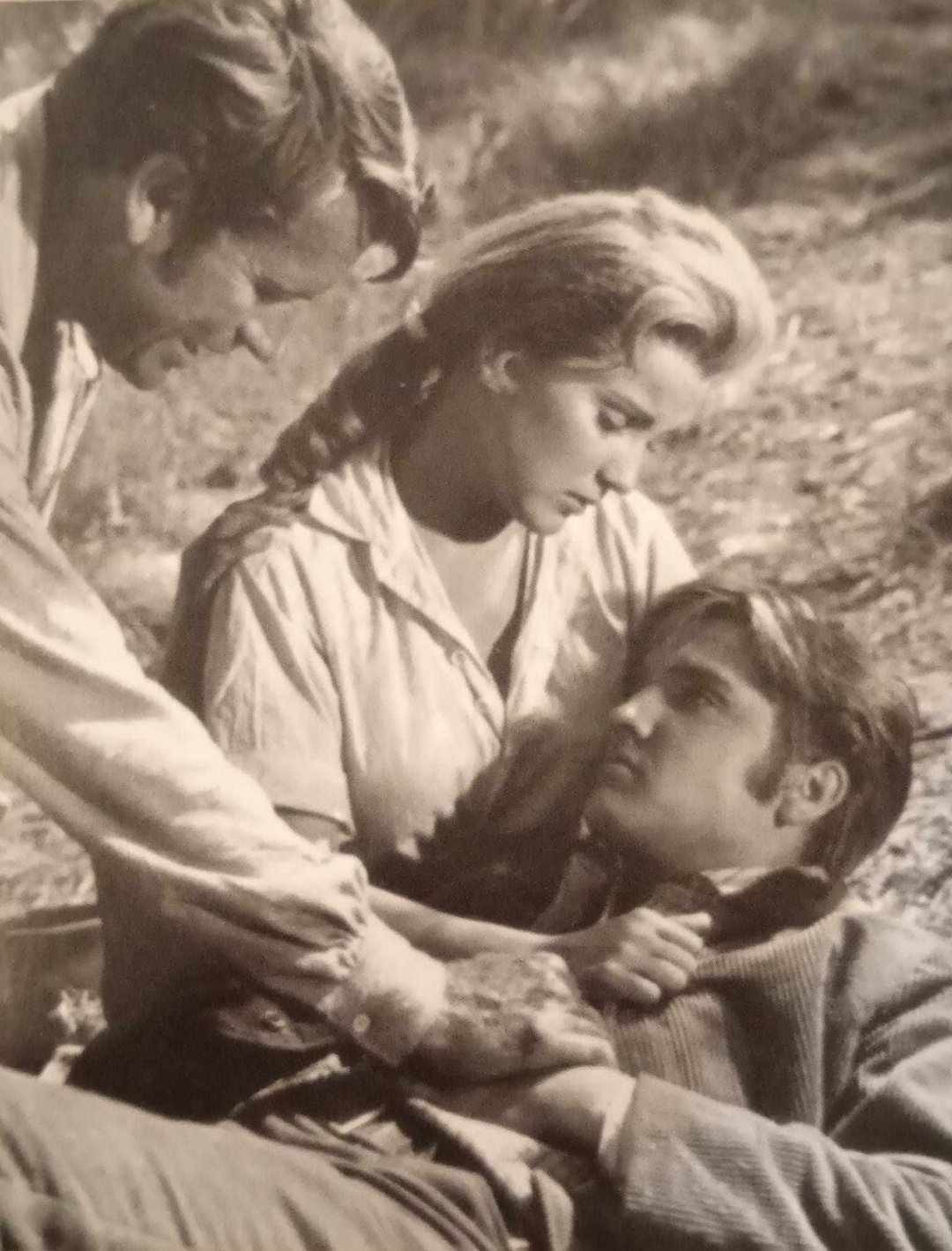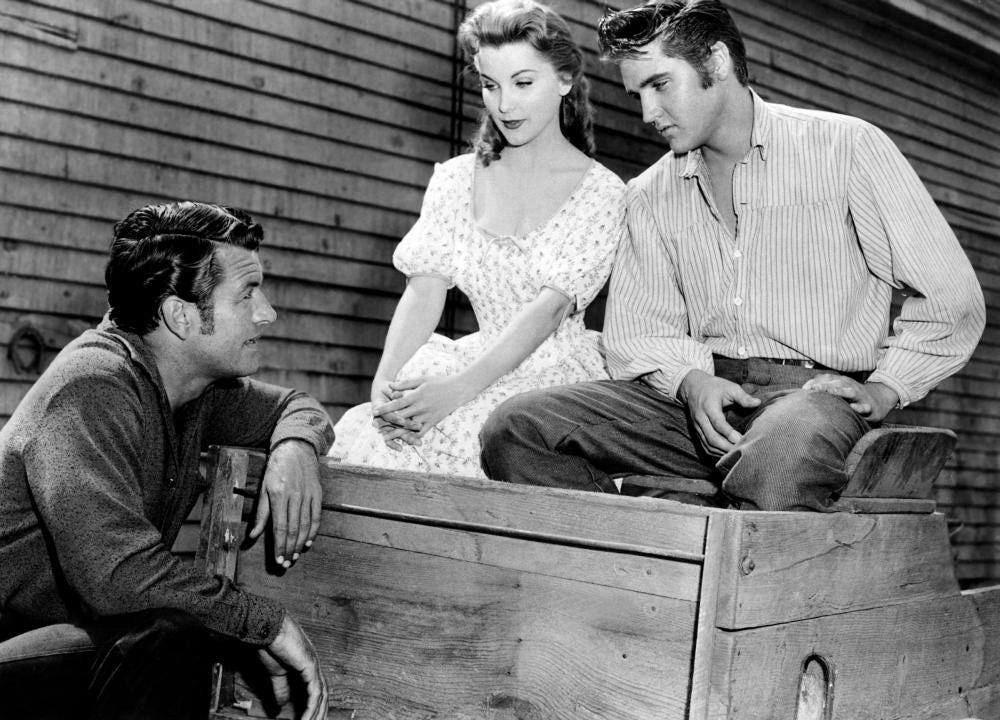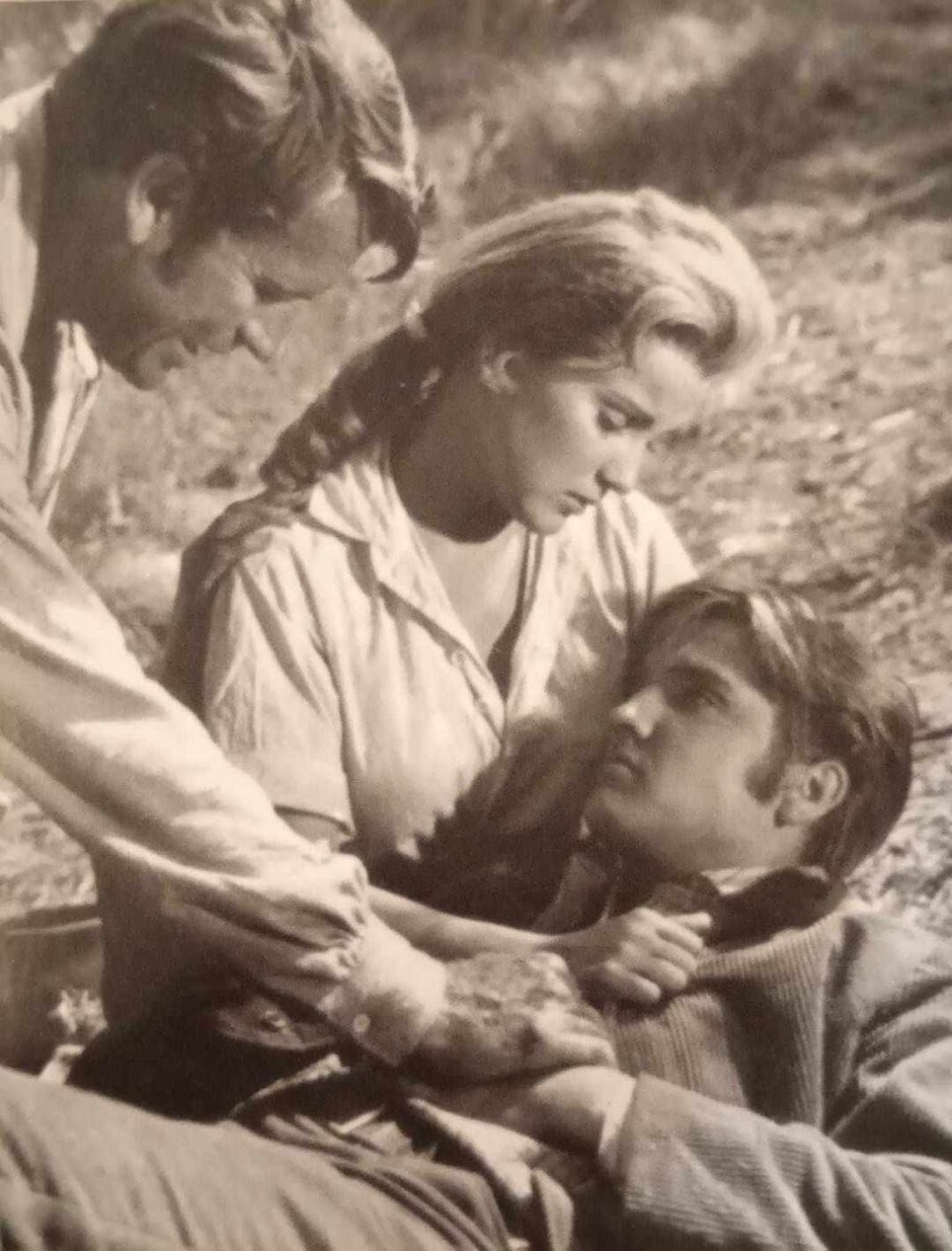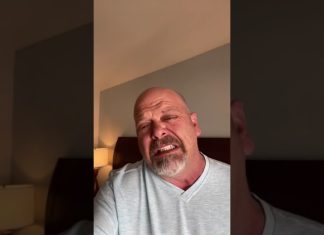Love Me Tender: The Film That Launched Elvis Presley into Stardom
In the vibrant cultural landscape of 1956, a year characterized by rock and roll beats and youthful exuberance, Elvis Presley made a monumental leap from the concert stage to the silver screen with the film Love Me Tender. This wasn’t merely a cinematic debut; it marked a significant cultural moment that ushered in the era of the rock and roll idol, transforming Elvis from a local music sensation into a nationwide phenomenon. While the film is often remembered for its iconic soundtrack and the magnetic presence of its star, it contains a wealth of interesting anecdotes, behind-the-scenes stories, and unexpected twists that are integral to its legacy.

The Name Game: From The Reno Brothers to Love Me Tender
Initially, the film was slated to carry the title The Reno Brothers, a direct homage to the infamous outlaw gang that serves as the backdrop for its narrative. However, everything changed when Elvis recorded the song Love Me Tender shortly prior to the film’s release. The single exploded in popularity, quickly dominating the airwaves and climbing to the top of the charts. In a remarkable twist of fate, 20th Century Fox decided to rename the film to capitalize on this unforeseen success. Suddenly, Love Me Tender transformed into more than just a title; it became a cultural phenomenon, intertwining the realms of music and cinema in a way that had never been seen before.

Unexpected Starring Role: Elvis’ Rise to Fame
For those who only know Elvis as the King of Rock and Roll, it may come as a surprise that he wasn’t always the leading man. Initially, Richard Egan was cast in the lead role, relegating Elvis to a supporting character, Clint Reno. However, as production progressed, it became clear that the young star had an undeniable charisma that could not be ignored. The producers quickly reworked the script, expanding Elvis’s role to include more dialogue, increased screen time, and additional songs that showcased his musical talent. It’s a testament to how quickly perceptions can shift when faced with a burgeoning superstar.

From Usher to Icon: Elvis’ Humble Beginnings
Before he ascended to the heights of Hollywood stardom, Elvis was just a young man working as a movie theater usher, handing out popcorn and dreaming of stardom. During this time, he would often sneak peeks at films featuring icons like James Dean, envisioning a future where he would be the one on the screen. It took only three days of screen tests for him to earn the role that would ultimately change his life. The transition from usher to leading man encapsulated the idea that dreams can indeed become a reality, often in the most unexpected ways.
The Hysteria of Elvis Mania
When Love Me Tender premiered at the Paramount Theatre in New York City, the excitement was palpable. Fans camped out overnight, eager to catch a glimpse of their idol on the big screen. The level of enthusiasm was so intense that the audience’s cheers and screams often drowned out the dialogue, creating a chaotic atmosphere that could only be described as “surround hysteria.” Even studio staff struggled to manage the fervor surrounding Elvis, an early indicator of the cultural impact he would have on the world.
Elvis the Professional: Commitment Beyond the Spotlight
Despite the overwhelming chaos, Elvis approached his role with the seriousness of a seasoned professional. Producer David Weisbart noted that Elvis arrived on set every day with all his lines memorized—not just his own but those of his co-stars too. His dedication was evident in the way he engaged with the material and the cast, asking questions and remaining humble throughout the process. This level of commitment, coupled with his natural stage presence, made him a formidable force in the film industry, even as a newcomer.
Not Just a Movie: The Evolution of Song
Interestingly, the song Love Me Tender wasn’t originally composed for the film. Its roots trace back to an old 1860s song titled Aura Lee. The lyrics were adapted by songwriter Ken Darby, although he credited his wife, Vera Matson, possibly due to copyright considerations. Elvis, who received co-writing credit, claimed he simply modified a line or two. Nonetheless, the song became an instant classic, selling over a million copies before the film hit theaters, further cementing Elvis’s position as a musical icon.
The Love Story Behind the Scenes
Elvis’s on-screen romance with co-star Debra Paget was not just a scripted affair; it mirrored real life. Elvis was reportedly infatuated with Debra, even proposing to her at one point, though she turned him down, adhering to her family’s conservative values. This unrequited affection influenced the chemistry depicted on screen and left a lasting impression on Elvis. Years later, it is rumored that Priscilla Presley emulated Debra’s hairstyle from Love Me Tender in an attempt to win over the King, showcasing the film’s influence on his personal life as well.
Controversies and Continuity Errors
The film is not without its share of controversies and amusing goofs. In a surprising twist, Elvis’s character meets a tragic end, a choice that displeased his mother and many fans. To mitigate this, the studio added a final scene of Elvis singing Love Me Tender in silhouette, offering audiences a bittersweet farewell. However, a notable blooper occurred during this scene—by the time it was filmed, Elvis had dyed his hair black, leading to continuity errors that viewers have since pointed out.
Legacy of Love Me Tender: A Cultural Shift
Ultimately, Love Me Tender is more than just a film; it represents a pivotal moment in American pop culture, marking the transition of Elvis Presley from a music sensation to a cinematic icon. Its title change, Elvis’s unexpected stardom, and the film’s reception encapsulate the essence of this transformative period in entertainment history. As we look back nearly seventy years later, the impact of this film remains significant, reminding us that Elvis didn’t merely step into Hollywood; he redefined it. Today, new audiences continue to discover the charm, charisma, and captivating performances that make Love Me Tender an enduring classic.

















